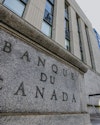As a result, the Bank of Canada adopted a monetary policy calling for normalization of its key interest rate, and the increases are now very real.
Even though much is being said about the impact of rate hikes on borrowing costs, such as mortgages, they also affect your investments and their returns. For a better understanding of this phenomenon, it’s relevant to review certain concepts.
The mechanism: monetary policy
To ensure the Canadian economy runs at the right speed, the Bank of Canada manages the level of inflation. With the goal of keeping inflation in a range of 1% to 3%, the Bank adjusts the key rate. It lowers it when the economy is too slow and inflation is tame, usually to stimulate spending. Conversely, when the economy is running at full capacity and inflation is rising in response, the Bank of Canada raises the key rate to prevent an inflationary spiral.
Effects on your investments
Changes in the key rate are among the factors that affect the interest rates set by financial institutions. Your investments are also affected by these changes, and each type of investment fluctuates in its own way.
Bonds
Interest rate hikes cause bond prices to fall. In a sense, this is an example of the law of supply and demand doing its work. In the eyes of investors, new bonds issued at a higher nominal rate are more attractive than those already outstanding. Therefore, the prices of outstanding bonds adjust downward to reflect this reality.
The maturity of your bonds is another factor that influences their sensitivity to changes in interest rates. Long-term bonds are more sensitive. As a result, when rates are raised, they react more strongly, as do their prices and yields. Ultimately, this context causes portfolio managers to constantly adjust their strategies, with the aim of generating a higher current yield in the coming years.
Stocks
Changes in interest rates also affect stocks. There are two notable effects:
First, the rising cost of borrowing hurts indebted businesses because the cost of debt repayment goes up. As a result, their earnings go down.
Second, the present value of a company is, in its simplest form, the present value of its future earnings. As the net present value (NPV) formula demonstrates, the higher the interest rate used to discount these future flows, the lower the current value of the business. As with bonds, a company’s present value is more sensitive to rate movements when earnings assumptions are aggressive and long-term.

Currencies
Interest rate movements also affect the price of our dollar. Influencing factors include the increased attractiveness of Canadian government bonds to foreign investors when interest rates rise. By buying these bonds in Canadian dollars, such buyers put pressure on the demand for our currency, thereby driving up its value. In contrast, for Canadian investors, when the Canadian dollar rises, investments outside our borders decline in value.
Even so, a strong currency lowers the cost of imports. This context is favourable to some sectors, especially the retail trade. Importing at a lower cost generally increases earnings, which can in turn increase the share prices of importers. Of course, the current context of supply-chain disruptions is interfering with this effect.
Diversification at FÉRIQUE Fund Management
As we can see, the effect of rising interest rates depends on the type of investment. What should we conclude from this observation? The best way to protect yourself from the impacts of such changes is to diversify your portfolio.
Diversification is the cornerstone of any sound financial strategy. You can use the FÉRIQUE Funds to invest in different regions and asset classes to build a well-diversified portfolio.
FÉRIQUE Fund Management also has five turnkey Portfolio solutions adapted to different types of investors with distinct risk tolerance profiles. The Portfolios follow the same rule, in line with the strategy of investment diversification.




